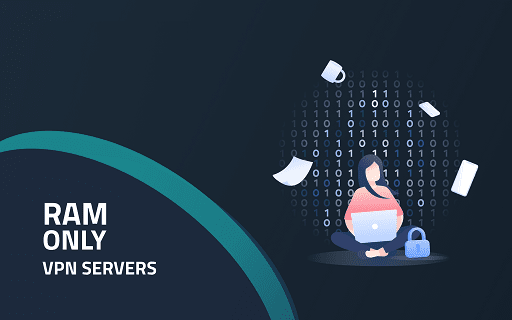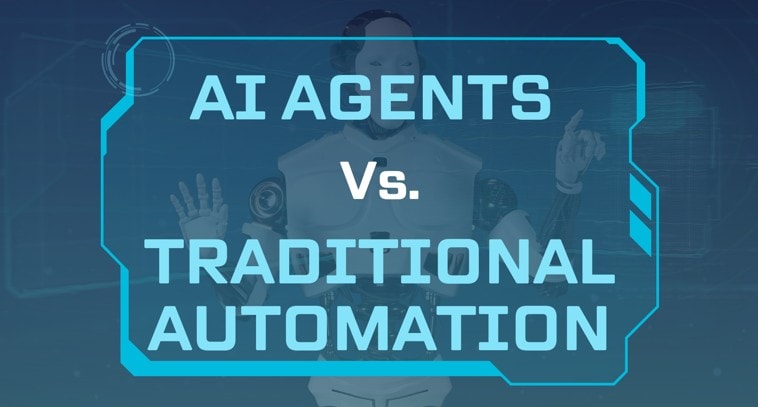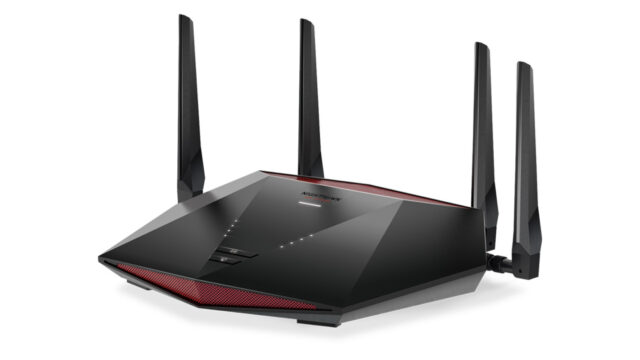RAM-Only VPN Servers: The conventional method of operating a virtual private network (VPN) server requires the utilization of hard drives, which are capable of storing data until it is either overwritten or deleted. In a configuration like this one, there is always a potential that the VPN servers will retain information that is private to the users.
If the server were compromised by a malicious third party, government agency, or ISO, it would be possible, in principle, to have access to these records. In a similar vein, hackers who successfully penetrate the server’s security might be able to install a backdoor and gain unauthorized access to sensitive data for an undetermined amount of time.
Many VPN providers have begun transitioning to RAM-based or RAM-only servers in order to protect their users’ privacy and address the inherent risks that are associated with HDD-based servers. So, tell me about them. How exactly do they function?

What is a RAM-Only VPN Server?
A Virtual Private Network server that relies solely on Random Access Memory is referred to as a RAM-only server (RAM). Because random access memory (RAM) is a volatile form of storage, any and all data is lost whenever the server is powered down and then backed up again.
This is a striking contrast to conventional hard disk drives (HDDs), on which data is preserved even after a system restart or a loss of power. The end result is a highly secure environment that stops data as well as possible attackers from staying on the server after they have been removed.
How do RAM-Only VPN Servers works
It is impossible for the operating system or applications to write to the hard drive when using a VPN server that is based on RAM. Instead, its functionality is entirely dependent on the RAM.
The only thing that is left on the hard drive is a read-only image of the server’s essential operating system and files that are required for it to function. When the server is booted up, this image can only be read and is encrypted using a cryptographic algorithm. It is then loaded into the RAM modules.
Because there are no HDDs involved, any data that was stored on the server is lost whenever it is rebooted or turned off completely.
What are the benefits of using RAM-Only VPN Servers
VPN servers that rely on RAM modules rather than traditional hard drives offer a number of advantages over their more-traditional counterparts. These are the following:
-
It increases Safety and Confidentiality
The private keys stored in the server configuration of HDD-based servers are vulnerable to attack, which makes the servers less secure overall. In this way, sensitive user information could be compromised if hackers were to steal the private keys, pretend to be a real server, and then use those keys to access the data.
However, RAM modules have a significantly more stringent approach to the management of information. When a session or a process is closed, all of the data that was associated with it is immediately and irreversibly deleted. That essentially constitutes a no-logs policy, which maintains your privacy and keeps you safe.
In addition, the operating system and any other essential applications are loaded from a read-only image, which makes it extremely difficult to compromise the security of the system because the image itself is encrypted.
In addition, you do not need to be concerned about the safety of your data even if the servers are physically confiscated. As a part of the precautionary measures, the service providers of the network can remotely restart the servers and delete all of the data.
-
Agile
Because of the way they are designed to function, RAM-Only VPN Servers offer greater agility to service providers than traditional servers do. Due to the fact that the servers consist of simply an image, it is incredibly simple to deploy, set them up, and keep them updated across many locations.
The agility allows for improved performance, shorter connection times, as well as enhanced monitoring and maintenance capabilities.
-
It increases Performance
When compared to standard VPN servers, RAM-only servers offer superior results in terms of both speed and reliability. They offer superior uploading and downloading speeds in addition to significantly improved connection times.
RAM-only servers ensure that all servers have the same configuration at all times, in contrast to HDD-based servers, where incremental updates can lead to server misconfigurations.
What are the disadvantages associated with RAM-Only VPN Servers
Moving to a profile that uses only RAM has not yet become the standard across industries, despite the apparent benefits of doing so. And the most important one is financial considerations.
Solid-state technology, which is used in RAM, is used, and it is substantially faster than traditional hard disk technology. However, the increased speed comes with a hefty price tag attached to it.
In order for RAMs to function in the manner that is wanted, a certain level of perfection is required. It is possible, for instance, to ignore or repair a faulty sector on a hard disk drive (HDD) using either hardware or software, but it is a lot more difficult to do the same thing with RAM modules. The higher cost of production is a direct result of this level of perfection being achieved.
When compared to VPN service providers who rely on hard disks for their storage, those that employ RAM in their server infrastructure charge more for monthly subscriptions.
RAM-Only Servers Use Volatile Memory Modules to Reinforce a Truly No-Logs Service RAM-only servers make use of volatile memory modules in order to reinforce a truly no-logs service. They are unable to get the data since the server is unable to be turned down or rebooted.
Even if they improve data security and privacy, RAM-only servers need a large financial investment from VPN providers and, eventually, from their customers.
Would you like to read more about RAM-Only VPN Servers-related articles? If so, we invite you to take a look at our other tech topics before you leave!









